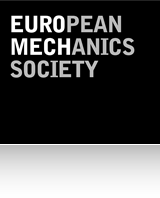607 – Marine Aging of Polymers
Chairperson:
Peter Davies
IFREMER Centre de Bretagne
Marine Structures group
29280 Plouzané
France
Phone: +33 298 22 4777
Fax : +33 298 22 4535
E-mail: peter.davies@ifremer.fr
Co-chairperson
John Summerscales
Professor of Composites Engineering, School of Engineering
University of Plymouth
England
Phone: +44 1752 5 86150
E-mail: J.Summerscales@plymouth.ac.uk
There are increasing quantities of polymer-based materials being used in marine structures. These range from thousands of composite pleasure boats to the hundreds of tons of offshore oil and gas pipe insulation, but in all cases their useful service life is limited by the effects of the marine environment on the mechanical performance of the polymer. Marine aging factors include sunlight for surface vessels, and hydrostatic pressure for deep sea applications but the main specificity in all cases is seawater. Many studies have focused on interactions between seawater and polymers over the last 50 years but new combinations of materials and more extreme service conditions (deeper water, higher temperature) require more reliable predictive tools than the simple experience-based safety factors used to date. This requires new, improved models of mechanical response and more realistic experimental test facilities to validate them. It is also essential to include coupling effects between water and mechanical loads, and work on these is at an early stage. The overall objective of the colloquium is to establish the state of the art in both the knowledge and prediction of the mechanical response of polymers and composites in a marine environment and to propose new research orientations.
The colloquium will address the following topics
1. Polymers and elastomers
2. Foams and syntactic foams
3. Polymer fibres
4. Fibre Reinforced polymers
Each session will include between four and six papers, followed by a discussion period. Presentations by young researchers and PhD students will be actively encouraged. The specific aims of the colloquium are the following: First, to bring together leading European experts in the area of polymer aging to discuss the specific problems associated with the influence of the marine environment on mechanical behaviour. Second, the issues associated with coupling between water diffusion and mechanical loads will be highlighted, as this is a key area in the development of predictive models and is receiving considerable current attention. A previous Euromech colloquium in 2013 examined Multi-physical couplings in solid polymers, but with a much wider scope (thermos-mechanical, liquid or gas diffusion and chemical coupling). It is hoped that significant progress will be made here on the specific effects of the marine environment. This is a key topic for many applications, which starts from the characterization and prediction of water ingress into polymers. Various models are available today, with different degrees of complexity (variants on Fickian diffusion, Langmuir models, clustering, polar interactions…). In order to establish water profiles in marine components modelling is unavoidable, but the validity and limits of these models need to be addressed. Then the interactions between mechanical loading and diffusion must be accounted for. The initiation and propagation of damage will be addressed. Presentations on the effects of hydrostatic pressure loading, a critical element of many underwater applications but not well understood today, will be particularly encouraged. Finally, accelerated test methodologies to predict long term mechanical behavior and their limitations will be discussed, in order to make progress in this essential area.
These aspects apply to all four classes of materials, but the current state of the art differs between them; grouping this range of polymer based materials in one colloquium will encourage transfers between researchers working in the different fields and accelerate progress towards reliable lifetime prediction modeling.
The colloquium will be held during the same week as the CFM conference in Brest, but attendees of the colloquium will not be obliged to pay the full fee for the CFM.
